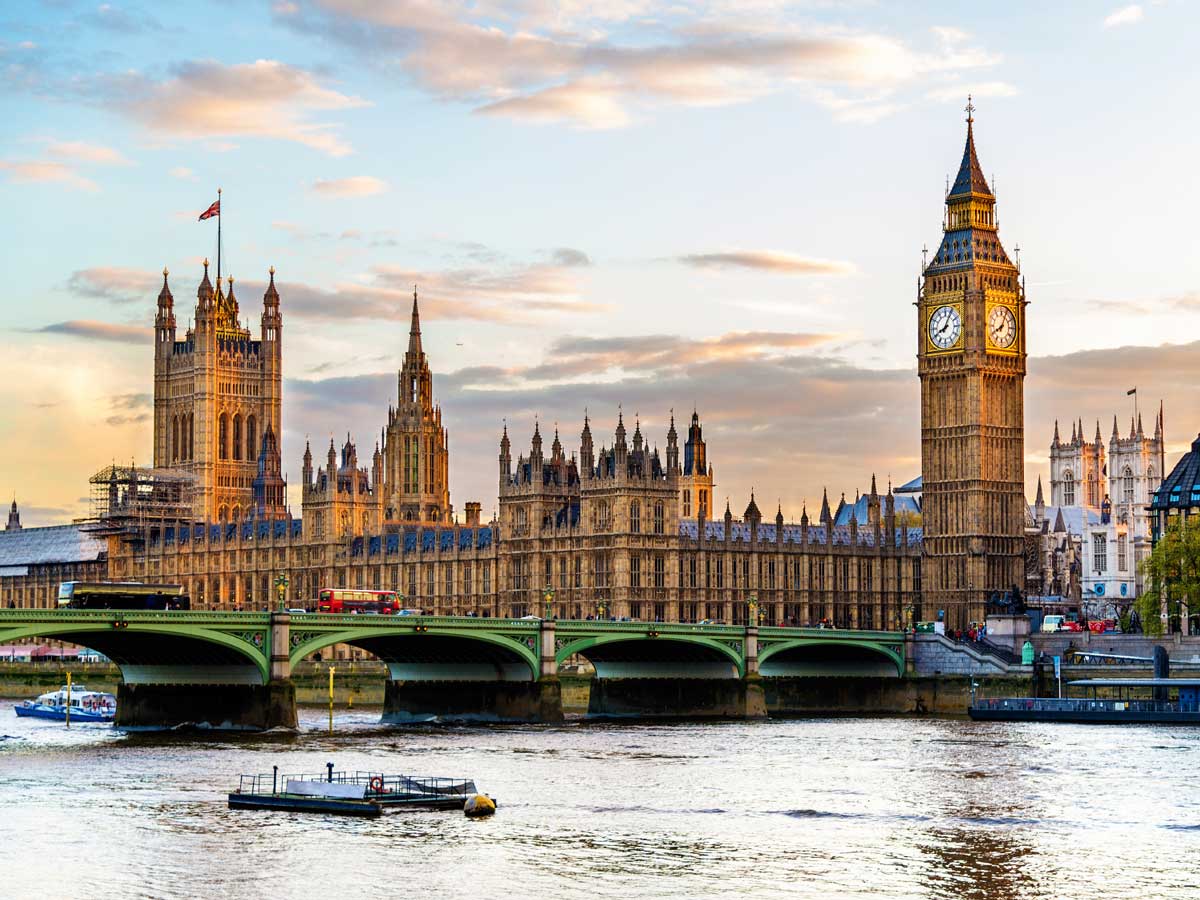Westminster Fellowship Scheme: applications opening soon

Picture: © Shutterstock
We caught up with RSC members Ella and Philippa, who undertook the 2020/21 Westminster Fellowship, to hear about their experiences working in Parliament.
Every year the RSC runs its Westminster Fellowship Scheme in partnership with the Parliamentary Office of Science and Technology (POST). This is an opportunity for our members who are undertaking, or recently completed, PhD studies to spend three months working for POST in Parliament, helping to ensure policy makers have access to the latest scientific and research evidence.
In 2020/21, RSC members Ella Rice and Philippa Kearney undertook the Westminster Fellowship. Ella was undertaking a PhD at the University of Edinburgh focusing on the on the development of aluminium catalysts, while Philippa was undertaking a PhD at the University of Bath on the topic of plastic pollution in the oceans. We asked them about their motivations for applying and what they valued most about their time working in Parliament.
Why did you apply for the Fellowship?
Ella: After spending a few years specialising in a very specific area of chemistry, I was interested in the impact of chemistry and the physical sciences in a broader context. I have always had an underlying interest in politics and wanted to see how scientific research can influence policy. Another contributing factor was a desire to explore careers outside academia that still involved chemistry and physical sciences. As my research is mainly based in a laboratory, I was interested in building soft skills and getting work experience before applying for jobs.
Philippa: I’ve always been interested in Parliament and policy. I decided to apply for the fellowship because it was a great opportunity to experience work at the intersection of science and policy, to research an emerging topic which I would not necessarily have known much about, and to see if this type of work would be something I would like to do after finishing my PhD.
What did you work on during your Fellowship?
Ella: Most of my time working at POST revolved around writing a POSTnote entitled ‘Developing Essential Digital Skills’. A POSTnote is a short parliamentary briefing used to inform members of parliament and the public on topics of scientific and technological interest. The process involved reviewing literature and interviewing stakeholders alongside writing the note. The interest in the topic was raised after a ‘digital divide’ was seen during the COVID-19 lockdown, when people were cut off and disadvantaged due to their poor access to technology. This POSTnote included the current data about the digital skills of the UK population and the people who lacked them, the impact of lacking these skills and the initiatives currently in place to improve digital skills.
Philippa: During my fellowship I worked on a POSTnote entitled ‘Smart Cities’. The briefing paper covered potential benefits and challenges associated with smart cities, current funding opportunities and related policy, case studies from around the UK, and explanations of the technologies that are often used in smart cities – such as sensor technologies, 5G connectivity, and edge computing.
What did you learn on the Fellowship?
Ella: The topic of my POSTnote was very different from my PhD research area despite being in the ‘Physical Science and ICT’ section, which allowed me to experience a completely new area of research. This difference also meant I had to apply skills I learnt during my PhD to this new area. Learning about digital skills made aware of the importance of such skills in my own life and how important they will be in my future career and the impact of lacking digital skills in the wider society.
The Fellowship also helped me advance my scientific communication skills and provided great insight into non-academic scientific writing. The POSTnote review process improved my understanding of writing effective science communication.
Philippa: I learnt a lot during the Fellowship. Working on a topic I had little experience with was a great opportunity to learn from industry experts and policy makers. Writing and editing a policy briefing paper was also a steep learning curve for me, but one I thoroughly enjoyed! Most importantly, I learnt that I really enjoyed working in science policy.
Has doing the Fellowship had an impact on your career plans?
Ella: The Fellowship has shown me that the skills I have gained throughout my PhD are transferrable outside academia and has enhanced soft skills that are important for future employment. The training and networking during the Fellowship allowed me to come into contact with and learn about many different career paths in both Parliament and the wider policy arena, opening up employment opportunities I hadn’t considered previously. For laboratory-based and experimental researchers, I think the Fellowship is a really useful tool to enhance writing and analytical skills for future employment.
Philippa: I really enjoyed working with the team at POST during my Fellowship. It was great to see how I can apply the skills I have developed throughout my PhD to work outside of academia, in an area I find particularly interesting. I am grateful to have had this opportunity to gain a better understanding of how science is communicated in Parliament, and I am hoping that I will be able to return to science policy work after completing my PhD!
Applications for the 2022/23 Westminster Fellowship Scheme will open soon. Keep an eye on our website for updates.